
Why and How to Grow A Pollinator Garden
Published: 20/12/2022 | Updated: 30/03/2023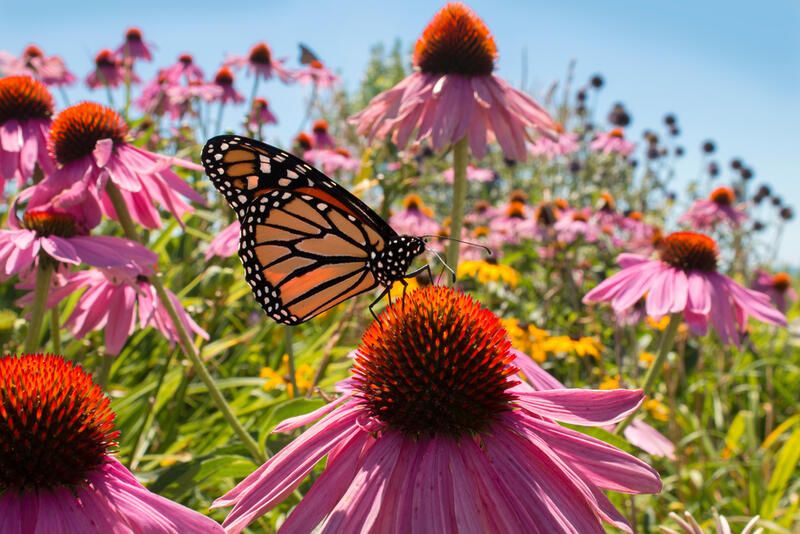
A well-designed outdoor garden can level up your yard and make it more enjoyable which will help bring you outside.


Spending time in a beautiful natural scene is proven to have uncountable mental and physical health benefits.
What if you can simultaneously enjoy a relaxing and health-boosting time in your outdoor space while helping the environment and the planet's health?
A pollinator garden is one of the best recent garden trends that both helps your ecological system and gives you a variety of beautiful plants to enhance your curb appeal and home's value.
Here's everything you need to know.
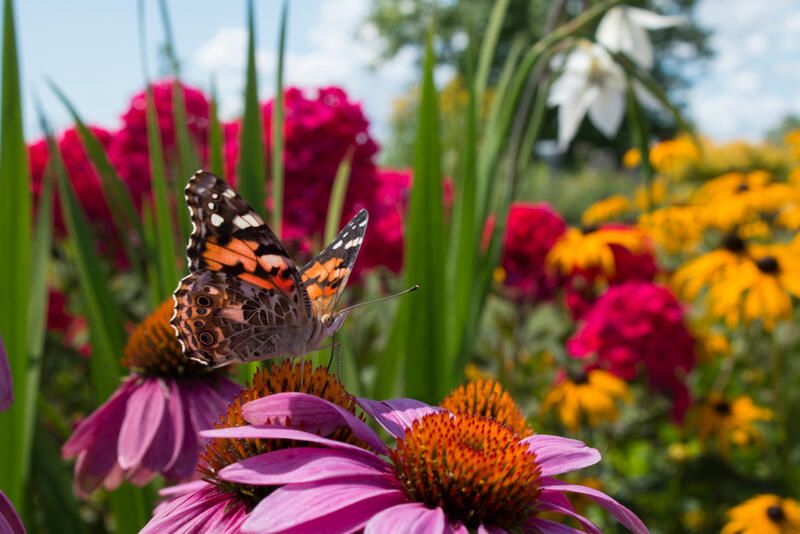
What is A Pollinator Garden?
A pollinator garden is specifically designed to produce nectar that helps attract pollinators like birds, bees, and butterflies and make a safe habitat for them.
These birds, animals, and insects pollinate plants (Hence the term pollinators) which helps the ecological system by maintaining food chains and preserving native species.
This type of garden usually uses native plants and grasses but is not limited to them.
These pollinator plants are often easy to find as they're available in local garden centers.
Why is That Important?
Wildlife is beautiful, who wouldn't want to listen to the hummingbirds as they fly around or watch the butterflies and bees make a harmonious natural symphony?
Though the biggest reason pollinator-friendly plants are important goes way beyond that, we will sum it up in two facts.
Fact 1. almost 75% of flowering plants and crops are pollinated by these animals and insects. So, without them, we would run short of food.
Fact 2. Pollinator populations are noticeably decreasing and have been for the past few decades.
Planting those pollinator host plants will give them shelter and food so that they can do their jobs which are very important to us.
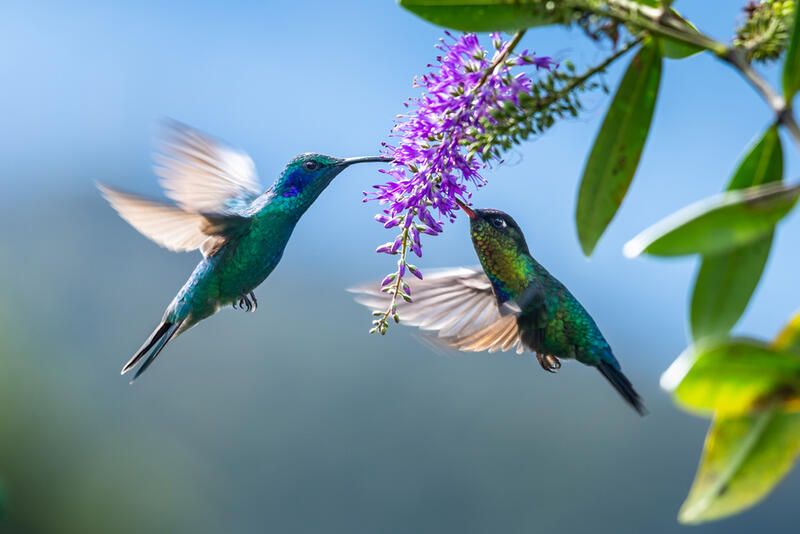
Some Pollinators
Bumblebees and Honeybees:
Bees are one of the most important pollinators, while they feed on the nectar produced by flowers, they carry a ton of pollen grains on their bodies and legs and move it to other flowers and plants.
Hummingbirds:
Like bees, hummingbirds feed on flower nectar and get pollen from these flowers stuck on their bodies, they then wipe it off on other flowers.
The same process goes for other pollinators like bats, butterflies, ants, wasps, and some types of flies.
Tips for A Successful Pollinator Garden
Native Plants:
We previously mentioned how important the use of native plants is for a project like that. Not only do they attract local pollinators, but they also don't exhaust the soil or harm native species as exotic plants do.
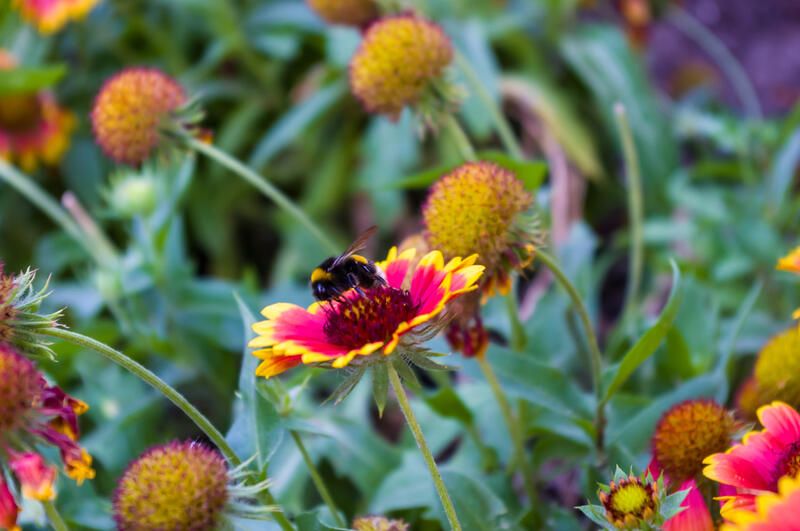
Plant Varieties:
Make sure to plant a variety of different plants in clusters to help direct the pollinators to your garden.
Plant multiple species that are a source of nectar, like flowering plants and fruit-bearing shrubs.
Garden Location:
Your ideal pollinator garden location gets a fair amount of sunlight and that isn't too windy so it wouldn't drive the pollinators away.
Water Source:
An ideal pollinator habitat should provide pollinators with all necessities.
Plant your garden near a water source or add a small bird bath for the same function. You can even create a small water source with a border, some rocks, and water.
Pollinator Gardens for Small Spaces
Even if you don't have the space for a pollinator garden, you can give your garden a buzz (quite literally) by adding some pollinator-friendly plants within your planting beds.
You can also plant a few pollinator-friendly plants near your vegetable garden to help pollinate your crops and increase their production.
Doing this, you'll be contributing and attracting pollinators to your yard without having to dedicate a big space for a garden.
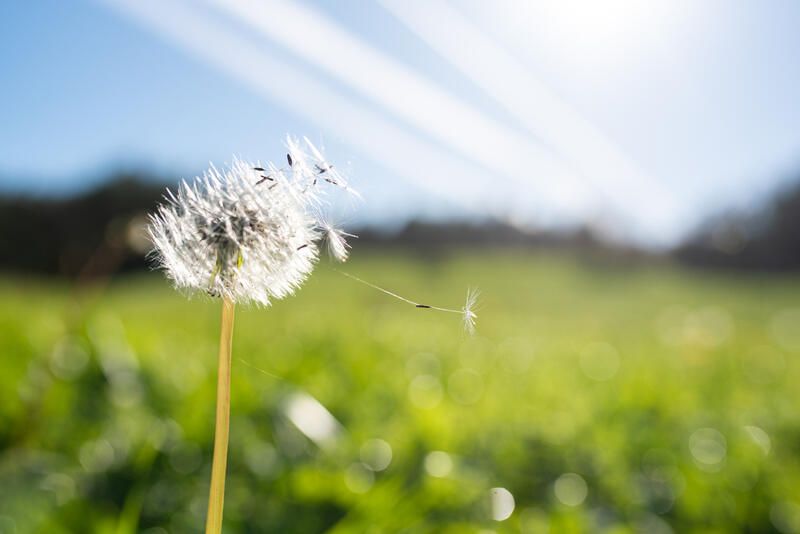
Plant Species Suitable for Pollinator Gardens
To ensure a successful pollinator garden project, you have to make wise plant selections.
The use of flowering plants, wildflowers, and some native grasses will attract native pollinators, like native bees and other insects.
Larval host plants are also important to attract butterflies to your garden. One example is Milkweed.
Monarch butterflies migrate in milkweed's growing season as they use these plants to lay their eggs.
Throughout the season, they would stay around and pollinate all neighborhood garden plants.
Here is a list of different-time blooming plants to ensure different pollinators will always have shelter in your garden.
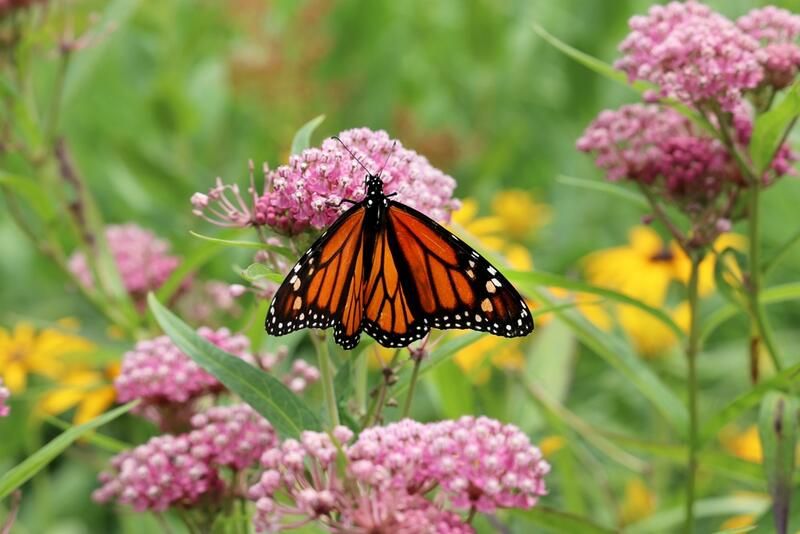
Spring Blooming Plants
Bird cherry: Otherwise known as hackberry, they bloom beautiful white flowers and reddish black fruits which are eaten by pollinator birds.
Geum rivale\water avens: a native pink flowering perennial that attracts pollinators.
Blackthorn: Fruit-bearing native shrubs with attractive cherry blossom-like white flowers.
Summer Blooming Plants
Climbing hydrangeas: With glossy big leaves and beautiful white blooms, you will love climbing hydrangeas in your garden, but not as much as the butterflies will.
Raspberries and blackberries: Both are fruit-bearing native shrubs. Their sweet blooms are a major attraction to all kinds of pollinators.
Common honeysuckle: With a floral scent, colorful blooms, and sweet nectar, the common honeysuckle is one of the most attractive summer bloomers to pollinators.
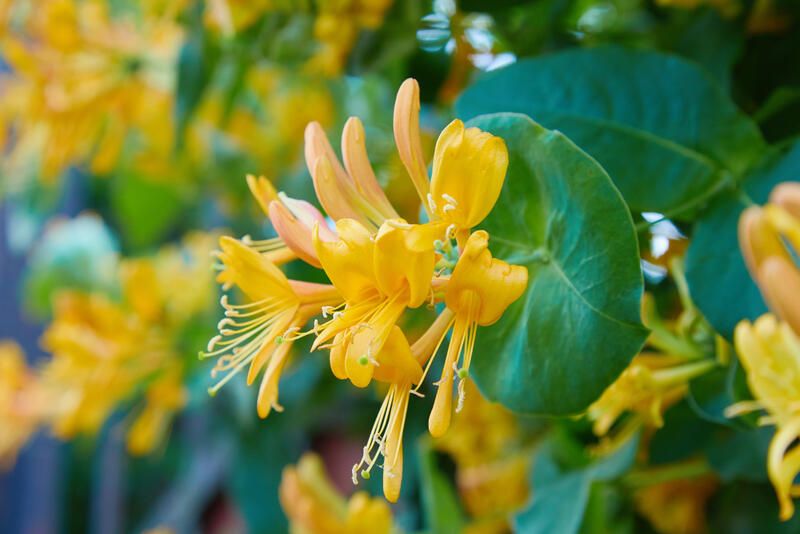
Fall Blooming Plants
Some fall-blooming plants are common ivy, Silverthorn, and Henry's lime.
Winter blooming plants
Sweetbox shrubs: Winter-blooming shrubs with glossy green leaves and small white flowers. they have a very sweet scent and nectar that pollinators are drawn to.
Oregon grapes: These winter blooms have great health benefits and are used to make some medications but they're also a great attraction to pollinators with their bright yellow flowers and their berry-like fruits.
Professional Landscaping Service
Shrub Hub can help you make a difference!
Consulting professionals before working on home improvements is always smart to make the most of your project.
At Shrub Hub, we provide you with all the information you need to ensure a successful plan.
From the ideal location to start your project to detailed lists of plants and materials required, we leave your project no room to go wrong.
Visit Shrubhub.com to catch up on our holiday promotions.


